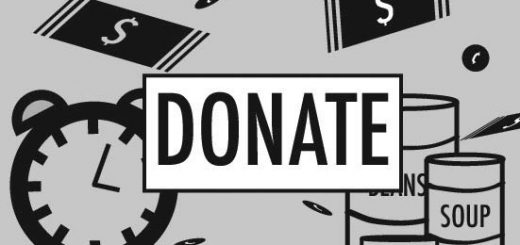Faith Column: The downfall of the Christian nation
In American politics, things change and yet stay the same
James Wilt
Faith Columnist
It’s over. Finally.
A year-and-a-half of attack ads and shallow debates combined with a staggering $6-billion of expenses has concluded in… well, what appears to be the exact same government that the United States had prior to this chaotic election.
Obama’s still in charge. The GOP holds the House. The Senate’s blue. Nothing’s really changed.
Looks are always deceiving in politics: in fact, a tremendous amount has shifted. We’ve witnessed a dramatic jump in the representation of women, religious minorities and people of colour in the House and Senate, the electoral decimation of Tea Party politicians and the stunning reversal of archaic legislation banning marijuana and gay marriage. Things that the far-right feared have happened.
So it’s not just the convoluted, frustrating election that’s over. What’s happening is the beginning of the end of the Religious Right’s rule.
Christian evangelicals have finally lost their complete stranglehold on politics in America. Of course, there’s no pretending that the likes of Michele Bachmann and Paul Ryan are gone, but their tax—, abortion— and Obamacare— hating army lost irreversible ground in the span of 12 hours.
The subsequent outcry from the evangelical camp has been predictably hilarious, with thousands of Facebook and Twitter profiles mourning the loss of their mythical Christian nation.

The United States is undergoing a lot of change right now. We here at The Reflector would like to recommend an official mascot update for America (A.K.A. Canada’s pants). Illustration: Vern McGill
Take this one for example, poached from a friend’s wall: “As a nation we have turned our back on God. Now we reap what we have sowed.”
That’s the general perspective: that their beloved white, androcentric, homophobic and classist “nation” has died. But rather than use this opportunity to take personal shots at brainwashed Christians, which is perhaps my all-time favourite activity, it might be a wiser endeavour to consider the future of the whole religion and its place in society.
It’s a big question, but there’s no better time to start. After all, something has to grow out of the same dirt that the Religious Right died into during this election.
The old Christian platform — complete with tax cuts for the rich and contraceptive cuts for the poor — no longer corresponds with the direction that America and the rest of the world is pursuing. Or, for that matter, the story of the very religion that the NRA card-carrying, anti-gay libertarian tends to profess adherence to.
Christians have an extensive history of compassion, pacifism, generosity and communal living — spanning from the church of Acts (“No one claimed that any of his possessions was his own, but they shared everything they had”) — to Francis of Assisi, to Mother Teresa.
Most of the values that were represented by such people are generally accepted today as egalitarian, humane and worthy of praise (except the whole evangelism part).
In other words, the Christian narrative is full of socialists, or at least people who would be revolted at movements like the Tea Party.
Unfortunately, such stories have been completely ignored by the Religious Right, who has instead chosen to conjure up a highly individualistic version of politics, which punishes the oppressed and glorifies the greedy.
But it’s no longer relevant. They’ve been beaten, harshly. Christians can re-define their participation in politics.
This is probably too optimistic. It’s more than likely that this election will only antagonize conservative Christians, inspiring them to start more Super PACs and protest outside abortion clinics. But I have hope.
Some 10 per cent of voters were Hispanic, half of whom are Christians. Almost three-quarters of them voted for Obama. It’s same with blacks in America: over 80 per cent are Christian, but over 90 per cent voted Democrat.
As Obama puts it, our time for change has come.





Fresh perspective. Insightful.
Now there’s another side of the tax cut perspective that is overlooked, and I see here and elsewhere on the interweb comments about Republicans/Conservatives being greedy because they favour tax cuts and are not crazy about welfare programs. The moral argument for taxation is wealth sharing, a government sponsored way to help the poor and needy. The conservative perspective isn’t that they shouldn’t help the poor, but that the individual should take upon themselves the responsibility to use their means to help the poor instead of the government. Here’s a case to illustrate that point.
My father in law is a wealthy business man. With his extensive means he has built an orphanage and a school in Haiti. He is paying for these kids (especially the girls) to go to high school, and eventually university. He is creating opportunities for parents of these children to work and earn a living so that they don’t need to put their children into orphanages. He is investing in the youth of Haiti, who will over the long term be able to pull that country out of chaos. He is able to do this through his extensive means.
A few years ago he met a Filipino who had come to Canada to work in the vineyards in BC for a pittance to help his family back in the Philippines. Again my father in law, because of his extensive means, is helping this young Filipino to build an egg farm in the Philippines. The long term plan of the egg farm is to use the profits to build another orphanage in the Philippines.
I do the book keeping for the farm in the Philippines and I know exactly how much money my father in law has put into this farm and it is no small amount.
I guarantee my father in law watches over his endeavors over seas with much more care and concern than a not-for-profit/foreign aid/government program because it is his own investment.
These over seas operations are also matched by considerable amounts of money he freely gives to families in need in his local area, as well as employment opportunities he is able to create for those seeking to gain employment or improve their employment.
Introductory finance teaches of the principal-agent problem which explains that agents (in the case of social programs, the government) will be less responsible with the resources of the owner, than the owner would be if the owner managed the resources himself/herself.
Now if the government increases taxes, that reduces the amount of disposable income people like my father in law have to use to improve the world in a meaningful and responsible way.
There are conservatives who are extremely generous but they prefer to change the world on their own, rather than through social programs. And usually they are more effective than the government for the reasons stated above.
I’m not saying that all conservatives are this benevolent. I’m saying that just because someone doesn’t support government programs, doesn’t mean they don’t support their fellowmen/women.
The argument could be made that the far left are too lazy to go out and help people so they would rather just pay the government to do it for them, thus abdicating themselves from their responsibility to help those in need. So they could be considered greedy with their time and effort. What’s the incentive to give to a government, when a government and its programs are corrupt and wasteful based on the way they are organized. The Trudeau Liberals almost bankrupt the country and the Mulroney Conservatives also increased the national debt. Two parties on different sides of the spectrum had the same net effect. The problem wasn’t the ideology, it was the system. A system that allows lawyers to make economic decisions for the country.
Brilliant comment. I really appreciate the feedback.
From my experience with working and volunteering with social agencies in Calgary, I’ve encountered many people who have absolutely nothing. In a city of enormous wealth, this is extremely depressing, but has also helped to justify much of my worldview in regards to taxation and redistribution. Frankly, I don’t think many people are actually as generous as your father-in-law, although the world would obviously be a much better place if they were.
So I absolutely, 100 per cent get where you’re coming from. I really do wish that society as a whole had enough perspective to recognize that the compounding of privilege often leads to huge divisions in society and would share the wealth around to try to remedy that. I guess I just don’t have enough faith in people (or myself) to do that. Another argument that I have for heavy taxation is that in an accountable and participatory government, the money that is collected via taxation is distributed to the systems that need it most.
Of course, this is wildly naive, because anyone who pays attention to provincial (or federal) politics knows how often corruption takes over. But I do prefer the idea of continual funding into systems like health care and education to ensure that access is made to all than for people to randomly funnel private capital into whatever they’re into (which isn’t at all demeaning the role of charity or those who are generous/capable enough to give).
Maybe I should just try to write a column about this.